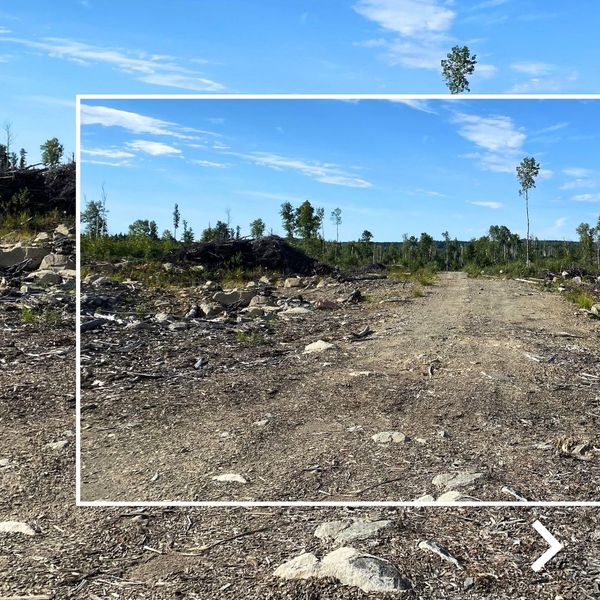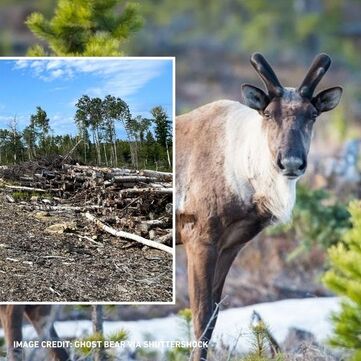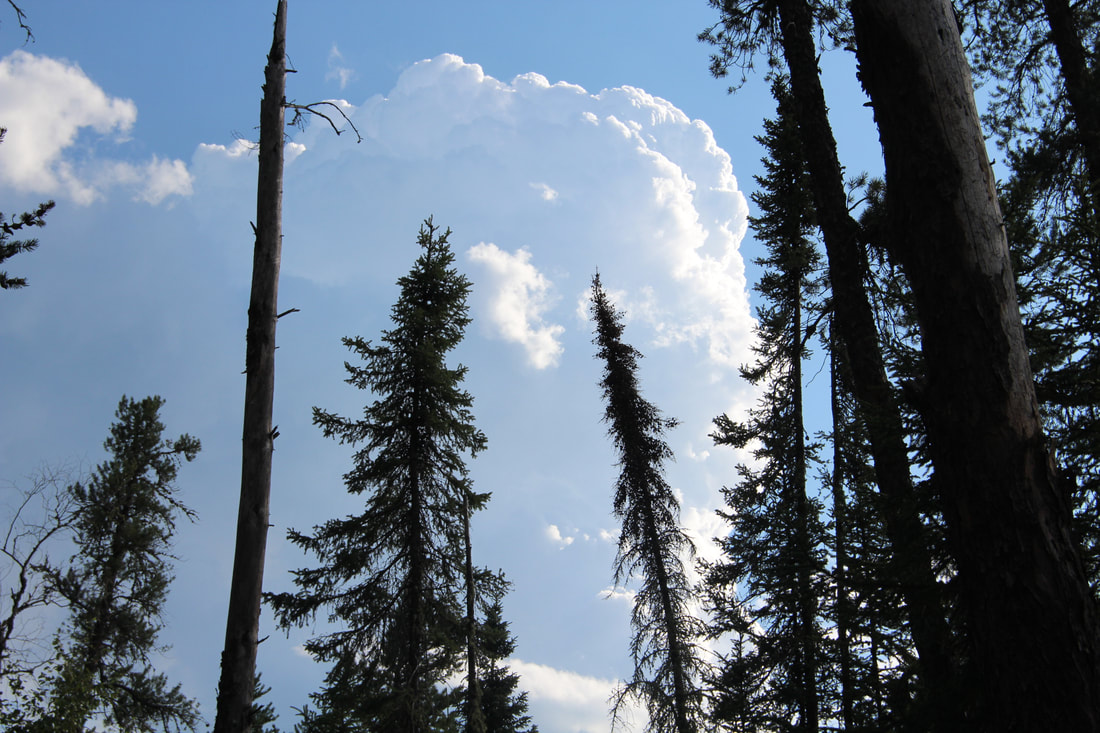Cutting the heck' out of Canada's boreal forest has put caribou at risk (latest from CBC news)1/21/2024 FULL STORY HERE
Canada is home to the largest boreal forest in the world, a vast expanse of wilderness rich in biodiversity that stretches from coast to coast. But a major new study examining nearly a half century of logging in Ontario and Quebec warns that clear-cutting has left forests in the provinces severely depleted — and puts woodland caribou at risk. The peer-reviewed research, published in the academic journal Land, found that logging practices between 1976 and 2020 have resulted in the loss of more than 14 million hectares of forest, an area roughly twice the size of New Brunswick. There are only 21 million hectares of older forest (defined as forests 100 years or older) remaining in the region. "We have been cutting the heck out of the boreal forest," said Jay Malcolm, a professor emeritus of forestry at the University of Toronto, and one of the authors of the study, conducted by researchers in Canada and Australia. The researchers calculated that older forests make up only 42 per cent of the forest area, and most of the remaining older forest is in the remote north. "It's very frightening. It was startling to see how little is left and how badly fragmented it is," said Malcolm. Read the rest here.
0 Comments
New study suggests federal government underreports greenhouse gases from forestry sector. (CBC News · Posted: Jan 16, 2024 (Full story here.)
Canada's forestry sector is responsible for far more greenhouse gas emissions than show up in official tallies, potentially leading to policies that aren't in line with the country's climate goals, a new study suggests. The peer-reviewed study, published in the academic journal Frontiers in Forests and Global Change, found that annual greenhouse gas emissions attributable to forestry between 2005 and 2021 were, on average, nearly 91 million tonnes of carbon dioxide equivalent — which would put the sector on par with emissions from the agricultural sector. (This was a joint study by scientists David Bysouth, Julee Boan, Jay R. Malcolm and Anthony R. Taylor.) By contrast, Canada's official inventory report shows the forestry sector acting as a carbon sink, which means it absorbs more carbon from the air than it sends into the atmosphere. The report has the sector absorbing an average of five million tonnes of carbon dioxide equivalent annually over the same period. Halifax Examiner Today: "Canadian Governments Fail to Count Environmental Costs of Industrial Logging" ----New report from eight leading North American and Canadian environmental organizations. A new report, The State of the Forest in Canada: Seeing Through The Spin, from eight leading North American environmental groups shows that the federal government is failing to tally the environmental and climate damage caused by industrial logging in Canada. ....the report “shows that Natural Resources Canada (NRCan)’s annual report downplays or ignores the significant impacts of industrial logging on biodiversity, the climate, forest integrity, and ecosystem services, and its potential infringements of Indigenous rights.” The report accuses Natural Resources Canada of failing “to provide Canadians with a transparent and credible synopsis” of basic information about the state of the nation’s forests, and of using “highly selective statistics and distorting or excluding essential information.” New study finds more than 14 million hectares cut in Ontario and Quebec since 1976New study finds more than 14 million hectares cut in Ontario and Quebec since 1976
Link to full story here! Canada is home to the largest boreal forest in the world, a vast expanse of wilderness rich in biodiversity that stretches from coast to coast. But a major new study examining nearly a half century of logging in Ontario and Quebec warns that clear-cutting has left forests in the provinces severely depleted — and puts woodland caribou at risk. The peer-reviewed research, published in the academic journal Land, found that logging practices between 1976 and 2020 have resulted in the loss of more than 14 million hectares of forest, an area roughly twice the size of New Brunswick. There are only 21 million hectares of older forest (defined as forests 100 years or older) remaining in the region. Link to full story here! A study finds that logging has inflicted severe damage to the vast boreal forests in Ontario and Quebec, two of the countryʼs main commercial logging regions. By Ian Austen and Vjosa Isai Ian Austen reported from Ottawa, and Vjosa Isai from Toronto. Canada has long promoted itself globally as a model for protecting one of the country’s most vital natural resources: the world’s largest swath of boreal forest, which is crucial to fighting climate change. But a new study using nearly half a century of data from the provinces of Ontario and Quebec — two of the country’s main commercial logging regions — reveals that harvesting trees has inflicted severe damage on the boreal forest that will be difficult to reverse. Researchers led by a group from Griffith University in Australia found that since 1976 logging in the two provinces has caused the removal of 35.4 million acres of boreal forest, an area roughly the size of New York State. While nearly 56 million acres of well-established trees at least a century old remain in the region, logging has shattered this forest, leaving behind a patchwork of isolated stands of trees that has created a landscape less able to support wildlife, according to the study. And it has made the land more susceptible to wildfire, scientists say. Read the full article here! "As part of the study, Professor Mackey and other researchers looked at the effects of logging on large groups of woodland caribou — animals that require large areas of older forest and that are affected by human disturbance. Logging roads, for example, make it easier for predators to hunt caribou, researchers said. Of the 21 herds within the two provinces’ boreal regions that researchers studied, 19 were at a high or very high risk of becoming unable to support their population." |
AuthorJoin the Conversation and be part of Process Archives
May 2024
Categories |
©2020 Friends of Wabakimi All Rights Reserved



